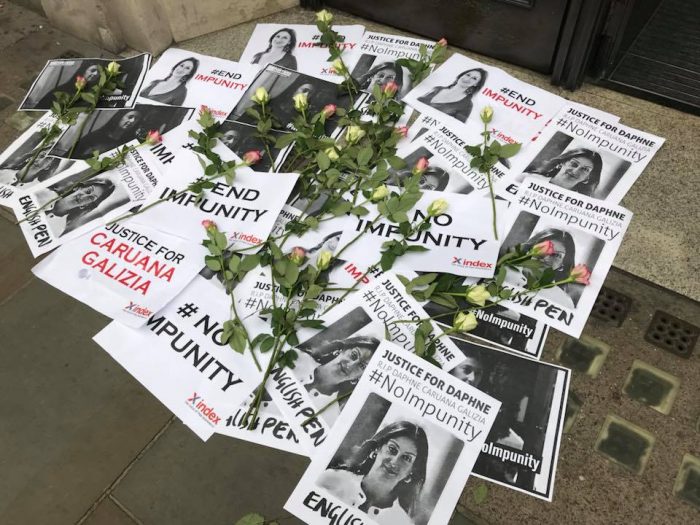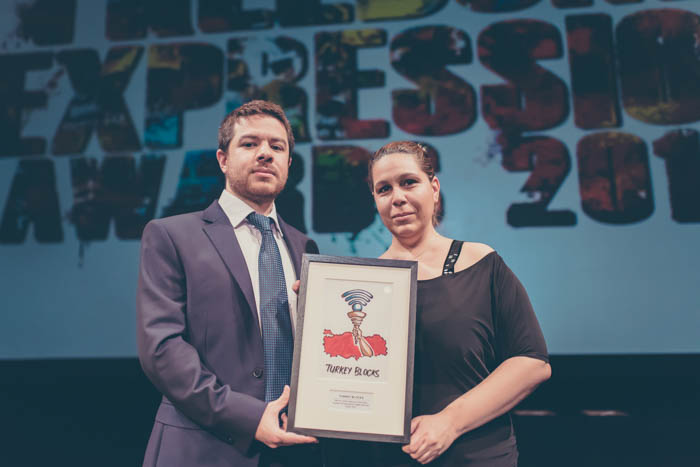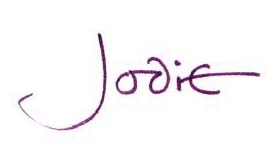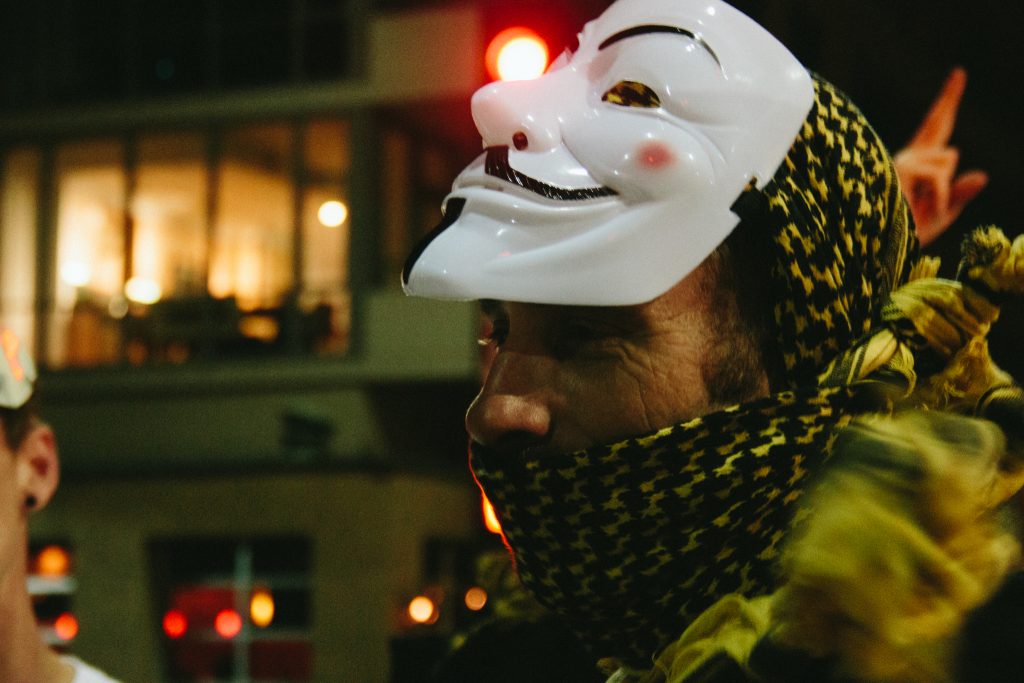11 Dec 2017 | News and features, Volume 46.04 Winter 2017
[vc_row][vc_column][vc_custom_heading text=”Fifty years after 1968, the year of protests, increasing attacks on the right to assembly must be addressed says Rachael Jolley”][vc_row_inner][vc_column_inner][vc_column_text]
[/vc_column_text][/vc_column_inner][/vc_row_inner][/vc_column][/vc_row][vc_row][vc_column][vc_column_text]
Close to where I live is a school named after an important protester of his age, John Ball. Ball was the co-leader of the 14th century Peasants’ Revolt, which looked for better conditions for the English poor and took to the streets to make that point. Masses walked from Kent to the edges of London, where Ball preached to the crowds. He argued against the poor being told where they could and couldn’t live, against being told what jobs they were allowed to pursue, and what they were allowed to wear. His basic demands were more equality, and more opportunity, a fairly modern message.
For challenging the status quo, Ball was put on trial and then put to death.
These protesters saw the right to assembly as a method for those who were not in power to speak out against the conditions in which they were expected to live and taxes they were expected to pay. In most countries today protest is still just that; a method of calling for change that people hope and believe will make life better.
However, in the 21st century the UK authorities, thankfully, do not believe protesters should be put to death for asserting their right to debate something in public, to call for laws to be modified or overturned, or for ridiculing a government decision.
Sadly though this basic right, the right to protest, is under threat in democracies, as well as, less surprisingly, in authoritarian states.
Fifty years after 1968, a year of significant protests around the world, is a good moment to take stock of the ways the right to assembly is being eroded and why it is worth fighting for.
In those 50 years have we become lazier about speaking out about our rights or dissatisfactions? Do we just expect the state to protect our individual liberties? Or do we just feel this basic democratic right is not important?
Most of the big leaps forward in societies have not happened without a struggle. The fall of dictatorships in Latin America, the end of apartheid, the right of women to vote, and more recently gay marriage, have partly come about because the public placed pressure on their governments by publicly showing dissatisfaction about the status quo. In other words, public protests were part of the story of major social change, and in doing so challenged those in power to listen.
Rigid and deferential societies, such as China, do not take kindly to people gathering in the street and telling the grand leaders that they are wrong. And with China racheting up its censorship and control, it’s no wonder that protesters risk punishment for public protest.
[/vc_column_text][/vc_column][/vc_row][vc_row][vc_column width=”1/4″][vc_icon icon_fontawesome=”fa fa-quote-left” color=”custom” align=”right” custom_color=”#dd3333″][/vc_column][vc_column width=”3/4″][vc_custom_heading text=”Protecting protest is vital, even if it doesn’t feel important today. ” google_fonts=”font_family:Libre%20Baskerville%3Aregular%2Citalic%2C700|font_style:400%20italic%3A400%3Aitalic”][/vc_column][/vc_row][vc_row][vc_column][vc_column_text]
But it is not just China where the right to protest is not being protected. Our special report on the UK discovers that public squares in Bristol and other major cities are being handed over to private companies to manage for hundreds of years, giving away basic democratic rights like freedom of speech and assembly without so much as a backwards glance.
Leading legal academics revealed to Index that it was impossible to track this shift of public spaces into private hands in detail, as it was not being mapped as it would in other Western countries. As councils shrug off their responsibilities for historic city squares that have been at the centre of shaping those cities, they are also lightly handing over their responsibilities for public democracy, for the right to assembly and for local powers to be challenged.
The Bristol Alliance, which already controls one central shopping district with a 250-year lease, is now seeking to take over two central thoroughfares as part of a 100,000-square-metre deal (see page 15). And the people who are deciding to hand them over are elected representatives.
In the USA, where a similar shift has happened with private companies taking over the management of town squares, the right to protest and to free speech has, in many cases, been protected as part of the deal. But in the UK those hard-fought-for rights are being thrown away.
Another significant anniversary in 2018 is the centenary of the right to vote for British women over 30. That right came after decades of protests. Those suffragettes, if they were alive today, would not look kindly on English city councils who are giving away the rights of their ancestors to assemble and argue in public arenas.
For a swift lesson in why defending the right to assembly is vital, look to Duncan Tucker’s report on how protesters in Mexico, Argentina, Venezuela and Brazil are facing increasing threats, tear gas and prison, just for publicly criticising those governments.
In Venezuela, where there are increasing food and medicine shortages, as well as escalating inflation, legislation is being introduced to criminalise protest.
As Tucker details on page 27 and 28, Mexican authorities have passed or submitted at least 17 local and federal initiatives to regulate demonstrations in the past three years.
Those in power across these countries are using these new laws to target minorities and those with the least power, as is typically the case throughout history. When the mainstream middle class take part in protest, the police often respond less dramatically. The lesson here is that throughout the centuries freedom of expression and freedom of assembly have been used to challenge deference and the elite, and are vital tools in our defences against corruption and authoritarianism. Protecting protest is vital, even if it doesn’t feel important today. Tomorrow when it is gone, it could well be too late.
But it is not all bad news. We are also seeing the rise of extreme creativity in bringing protests to a whole new audience in 2017. From photos of cow masks in India to satirical election posters from the Two-Tailed Dog Party in Hungary, new techniques have the power to use dangerous levels of humour and political satire to hit the pressure points of politicians. These clever and powerful techniques have shown protest is not a dying art, but it can come back and bite the powers that be on the bum in an expected fashion. And that’s to be celebrated in 2018, a year which remembers all things protest.
Finally, don’t miss our amazing exclusive this issue, a brand new short story by the award-winning writer Ariel Dorfman, who imagines a meeting between Shakespeare and Cervantes, two of his heroes.
[/vc_column_text][/vc_column][/vc_row][vc_row][vc_column][vc_column_text]
Rachael Jolley is the editor of Index on Censorship magazine.
[/vc_column_text][/vc_column][/vc_row][vc_row][vc_column][vc_custom_heading text=”From the Archives”][vc_row_inner][vc_column_inner width=”1/3″][vc_single_image image=”91582″ img_size=”213×289″ alignment=”center” onclick=”custom_link” link=”http://journals.sagepub.com/doi/pdf/10.1080/03064228808534472″][vc_custom_heading text=”Uruguay 1968-88″ font_container=”tag:p|font_size:24|text_align:left” link=”url:http%3A%2F%2Fjournals.sagepub.com%2Fdoi%2Fpdf%2F10.1080%2F03064228808534472|||”][vc_column_text]June 1988
In 1968 she was a student and a political activist; in 1972 she was arrested, tortured and held for four years; then began the years of exile.[/vc_column_text][/vc_column_inner][vc_column_inner width=”1/3″][vc_single_image image=”94296″ img_size=”213×289″ alignment=”center” onclick=”custom_link” link=”http://journals.sagepub.com/doi/pdf/10.1080/03064228108533158″][vc_custom_heading text=”The girl athlete” font_container=”tag:p|font_size:24|text_align:left” link=”url:http%3A%2F%2Fjournals.sagepub.com%2Fdoi%2Fpdf%2F10.1080%2F03064228108533158|||”][vc_column_text]February 1981
Unable to publish his work in Prague since the cultural freeze following the Soviet invasion in 1968, Ivan Klíma, has his short story published by Index. [/vc_column_text][/vc_column_inner][vc_column_inner width=”1/3″][vc_single_image image=”91220″ img_size=”213×289″ alignment=”center” onclick=”custom_link” link=”http://journals.sagepub.com/doi/pdf/10.1177/0306422017716062″][vc_custom_heading text=”Cement protesters” font_container=”tag:p|font_size:24|text_align:left” link=”url:http%3A%2F%2Fjournals.sagepub.com%2Fdoi%2Fpdf%2F10.1177%2F0306422017716062|||”][vc_column_text]June 2017
Protesters casting their feet in concrete are grabbing attention in Indonesia and inspiring other communities to challenge the government using new tactics.[/vc_column_text][/vc_column_inner][/vc_row_inner][vc_separator][/vc_column][/vc_row][vc_row content_placement=”top”][vc_column width=”1/3″][vc_custom_heading text=”What price protest?” font_container=”tag:p|font_size:24|text_align:left” link=”url:https%3A%2F%2Fwww.indexoncensorship.org%2F2017%2F12%2Fwhat-price-protest%2F|||”][vc_column_text]In homage to the 50th anniversary of 1968, the year the world took to the streets, the winter 2017 issue of Index on Censorship magazine looks at all aspects related to protest.
With: Micah White, Ariel Dorfman, Robert McCrum[/vc_column_text][/vc_column][vc_column width=”1/3″][vc_single_image image=”96747″ img_size=”medium” alignment=”center” onclick=”custom_link” link=”https://www.indexoncensorship.org/2017/12/what-price-protest/”][/vc_column][vc_column width=”1/3″ css=”.vc_custom_1481888488328{padding-bottom: 50px !important;}”][vc_custom_heading text=”Subscribe” font_container=”tag:p|font_size:24|text_align:left” link=”url:https%3A%2F%2Fwww.indexoncensorship.org%2Fsubscribe%2F|||”][vc_column_text]In print, online. In your mailbox, on your iPad.
Subscription options from £18 or just £1.49 in the App Store for a digital issue.
Every subscriber helps support Index on Censorship’s projects around the world.
 SUBSCRIBE NOW[/vc_column_text][/vc_column][/vc_row]
SUBSCRIBE NOW[/vc_column_text][/vc_column][/vc_row]
8 Dec 2017 | Malta, Mapping Media Freedom, Media Freedom, media freedom featured, News and features
[vc_row][vc_column][vc_column_text] Doughty Street Chambers has surfaced concerns about the investigation being carried out by Maltese authorities into the death of Daphne Caruana Galizia, a journalist, writer and anti-corruption activist murdered on 16 October when her car exploded.
Doughty Street Chambers has surfaced concerns about the investigation being carried out by Maltese authorities into the death of Daphne Caruana Galizia, a journalist, writer and anti-corruption activist murdered on 16 October when her car exploded.
In its urgent legal advice to the family of Galizia, Doughty Street Chambers, an international specialist law firm, raised issues around the independence of the investigation, which they said was in a “clear and serious breach of Article 2” of the European Convention on Human Rights, which guarantees an effective investigation.
Doughty Street barristers Caoilfhionn Gallagher QC and Jonathan Price said “we are of the firm view that Malta is in flagrant violation of the Article 2 investigative duty and thus in breach of its obligations under the ECHR”, and that “from the information available at this stage it appears highly likely to us that the Maltese authorities have also violated other human rights of Ms Caruana Galizia and the bereaved family, under Articles 2, 3, 8, 10 and/ or 13 ECHR (and indeed under other international human rights treaties and domestic law).”
A further requirement of Article 2 is that the investigation should safeguard the legitimate interests of the next of kin. However, Galizia’s family members have been learning of key developments through grossly inappropriate channels: Twitter accounts belonging to politicians and news headlines.
“The advice from leading legal experts confirms that Malta is in breach of its obligations under European law to investigate the murder of Daphne Caruana Galizia thoroughly and fairly”, said Joy Hyvarinen, head of advocacy at Index on Censorship. “The advice raises extremely serious questions about the Maltese police, and Index believes that external, independent investigators must be appointed urgently.”
The lawyers called for swift action to be taken by the authorities in Malta to immediately remove the deputy commissioner from his role and to apologise to the family “for the failure to appropriately update and involve them in the investigation, and alter the way in which information is provided to them to comply with Article 2’s requirements.”[/vc_column_text][/vc_column][/vc_row][vc_row][vc_column][vc_basic_grid post_type=”post” max_items=”12″ style=”load-more” items_per_page=”4″ element_width=”6″ grid_id=”vc_gid:1512749485797-9de444c0-8566-10″ taxonomies=”18781, 18782″][/vc_column][/vc_row]
8 Dec 2017 | Campaigns -- Featured, Digital Freedom, Fellowship, Fellowship 2017, Statements, Turkey, Turkey Letters
[vc_row][vc_column][vc_column_text]

Alp Toker and Isik Mater of Digital Activism Award-winning Turkey Blocks at the 2017 Freedom of Expression Awards (Photo: Elina Kansikas for Index on Censorship)
“We send a unified message to those who seek to silence independent voices: as long as freedom of expression and digital rights are not safeguarded, our mission will continue and we will persist.” – Alp Toker, co-founder Turkey Blocks, 2017 Digital Activism Fellow
Silence is the oppressor’s friend. Targeting those who speak out against corruption and injustice is the favoured tool of those who seek to crush dissent. Don’t let the bullies win – help us champion the people who are fighting back. People like Freedom of Expression Awards fellows Turkey Blocks.
With your help, each year we are able to support writers, journalists and artists at the free speech front line – wherever they are in the world – through Index Fellowships. These remarkable individuals risk their freedom, their families and even their lives to speak out against injustice, censorship and threats to free expression.
I am writing now to ask you to support the Index Fellows. Your donation provides the support and recognition these outstanding individuals need to ensure their voices are heard despite the restrictions under which they are forced to live and work.
Your support will help winners like Turkey Blocks, who continue to work hard to track and battle internet outages around the world, trying to ensure that they “make technology a force for good” says Alp Toker, founder.
The team, working under the new name Net Blocks, have most recently been developing a new tool COST, which calculates the financial impact of mass-censorship, “a very powerful method for convincing governments not to censor content”. Index will help them to launch COST in 2018. Meanwhile, in a “quite historic” meeting, they sat down with the internet blocking authority of Turkey. “I think that it’s just great that we’re able to have some dialogue, because things in Turkey are very polarized right now. Normally it’s like oil and water—you can’t even exist in the same space” says Toker.
Alp Toker says the Index Awards Fellowship has made them feel “valued, recognised and befriended” and co-founder Isik Mater says “I can feel that if something bad happens to me or my colleagues, Index will be there to support us”.
I hope you will consider showing your support for free speech and the Index Fellows. A gift of £500 would support professional psychological assistance for a fellow; a gift of £100 helps them travel to speak at more public events. A gift of £50 helps us to be available for them 24/7. You can make your donation online now.
Please give what you can in the fight against censorship in 2018. Make your voice heard so that others can do the same.
Thank you for your support.

Jodie Ginsberg, CEO
P.S. The 2018 Index on Censorship awards will be held in April. To find out more about the awards including previous winners, please visit: https://www.indexoncensorship.org/awards
Index on Censorship is an international charity that promotes and defends the right to free expression. We publish the work of censored writers, journalists and artists, and monitor, and campaign against, censorship worldwide.[/vc_column_text][/vc_column][/vc_row][vc_row][vc_column][vc_basic_grid post_type=”post” max_items=”12″ style=”load-more” items_per_page=”4″ element_width=”6″ grid_id=”vc_gid:1512726349609-d7244289-6e40-2″ taxonomies=”9034″][/vc_column][/vc_row]
7 Dec 2017 | Academic Freedom, News and features, Turkey, Turkey Uncensored
[vc_row][vc_column][vc_single_image image=”96838″ img_size=”full” add_caption=”yes”][vc_column_text]A group of court reporters scurried along the halls of Istanbul’s massive Çağlayan Courthouse on the morning of 7 December, taking pictures of the tables showing the trial schedules of several high criminal courts to share them with other reporters make sure that none of the sessions of the day go unreported. There were too many trials, but too few reporters interested.
The journalists — all from the dwindling critical media of Turkey — were there to cover the trials of dozens of academics who will be tried by İstanbul’s 33rd, 34rth and 35th High Criminal Courts in the coming weeks and months. The academics are accused of having disseminated “propaganda on behalf of a terror organization,” when, in 2016 January, they signed a petition calling on the Turkish government to put an end to security forces’ operations in the predominantly Kurdish southeast of the country, where many alleged human rights violations — including deaths of civilians — took place under curfews declared in the region.
So far 148 people have been formally indicted, but a total of 1,128 academics signed the document, called the “Peace Petition” by its supporters. Nearly 500 of the “academics for peace” were expelled from university jobs with cabinet decrees issued under Turkey’s state of emergency declared after the failed coup attempt of July 2016. Nobody knows the exact number of those who left the country, to flee not the investigations against them and legal troubles as much, but the ever stifling and increasingly darker academic climate.
Only four academics — who were imprisoned between March and April 2016 for reading out the petition publicly– have so far been tried. The trials into the rest of the academics began on 6 December, with 10 academics appearing before a judge. One of them, Osman Olcay Kural, an academic from the Galatasaray University, has no regrets. “I am very glad that we signed that petition. I am thinking that we should have done it before,” he said, adding: “I will take this one step further. I don’t think anybody on that list regrets having signed the petition. If there are any, it has to be out of fear. They were frightened badly.”
And he is right. Some academics — although only a few — announced taking their signatures back after universities started investigating them back in early 2016. “And that, I respect,” Kural says. “People have children to take care of and bills to pay. It is the circumstances that have put them in this situation I regret.”
As the first academic to go on trial, Kural might have also inadvertently set the tone for the rest of the academic trials. The court hearing his trial rejected a request from Kural’s lawyer to try his client under Turkish Penal Code Article 301 — “denigrating Turkishness, the Republic and State agencies and organs,” which was the main accusation in the trial of the four academics who were tried earlier. The trial was adjourned until 12 April next year.
What about the others?
If there were 1,128 people who signed the petition, and if most of them are possibly all of them were investigated, then why have only 148 cases have been opened so far?
“Because the prosecutors chose to try them one by one. The text they are using in the indictments is the same; a single case could have been launched,” says Veysel Ok, a lawyer, who currently represents dozens of journalists and several of the peace academics. He, understandably, expects that number to go up in the coming days.
Attorney Ok says the “terror propaganda” and “denigrating Turkish state organs” accusations are vastly different in nature because a 301 conviction is better as it is not a terror crime. How can it be possible for a prosecutor to consider one in place of the other? “There is absolutely no legal explanation for this,” he says. “There is no incitement to terrorism or violence in that petition. For terror propaganda, such incitement is a requirement. To the contrary, the academics’ text wishes for peace. There is absolutely no legal basis for that accusation.”
Productivity in difficult times
“They are trying to make up a crime out of the petition,” agrees Emre Tansu Keten, a peace academic who was expelled from his position as a research assistant at Marmara University with a cabinet decree in February 2017. “This petition doesn’t fit either terror propaganda or 301.”
Keten, like the rest of the signers of the petition, will soon be on trial. However, like Kunal, he is unfazed by the government’s reaction. “As a political individual, I can’t say I was really shocked or that I went through an emotional breakdown when I was expelled,” he laughs.
Out of his university job, he keeps busy, “I work at a publisher as an editor, I am continuing on with my academic studies. I do a lot for [Turkish education professionals’ union] Eğitim-Sen, there is much to be done there.”
For many “peace academics” — and others under pressure in Turkey, such as journalists or rights activists — the unusually difficult times the country is going through need not put life on hold. So much has happened over the past few years: alliances forged by the government that were never expected to be broken have shattered; ministers have been listed as defendants in foreign courts; hundreds of civil servants, judiciary members, soldiers, police officers have been expelled or jailed; scores of President Erdoğan loyalists have fallen from grace and heads of mayors from the government party have rolled (of course, figuratively speaking, at least for now) over the upsetting results of a referendum that the government actually won. Yet, none of this has stopped the core of opposition in Turkey and people like Keten — who is also busy these days working on the final chapters of his doctoral thesis — have continued their prolific work.
When the tide turns, something good might even come out all of this.
“There has been a search for an alternative academia for more than a decade in Turkey,” Keten says. “We, the academics of solidarity, are teaching alternative classes in Ankara, İzmir and Eskişehir. There are other journals and serious publishing houses where we can write and be published.”
“To a certain extent, these policies of intimidation have worked,” he added. “Many [who signed the] peace petitions have left the country, but there is also a group which has, over the past two years, created a foundation for a struggle. There are those who have stayed, and who are working to change things. And that, gives, hope.”[/vc_column_text][vc_single_image image=”96839″ img_size=”full” add_caption=”yes”][/vc_column][/vc_row][vc_row][vc_column][vc_custom_heading text=”Mapping Media Freedom” use_theme_fonts=”yes”][vc_separator color=”black”][vc_row_inner][vc_column_inner width=”1/4″][vc_icon icon_fontawesome=”fa fa-times-circle” color=”black” background_style=”rounded” size=”xl” align=”right”][/vc_column_inner][vc_column_inner width=”3/4″][vc_column_text]
Since 24 May 2014, Mapping Media Freedom’s team of correspondents and partners have recorded and verified 3,597 violations against journalists and media outlets.
Index campaigns to protect journalists and media freedom. You can help us by submitting reports to Mapping Media Freedom.[/vc_column_text][/vc_column_inner][/vc_row_inner][vc_separator color=”black”][/vc_column][/vc_row][vc_row][vc_column][vc_custom_heading text=”Don’t lose your voice. Stay informed.” use_theme_fonts=”yes”][vc_separator color=”black”][vc_row_inner][vc_column_inner width=”1/2″][vc_column_text]Index on Censorship is a nonprofit that campaigns for and defends free expression worldwide. We publish work by censored writers and artists, promote debate, and monitor threats to free speech. We believe that everyone should be free to express themselves without fear of harm or persecution – no matter what their views.
Join our mailing list (or follow us on Twitter or Facebook) and we’ll send you our weekly newsletter about our activities defending free speech. We won’t share your personal information with anyone outside Index.[/vc_column_text][/vc_column_inner][vc_column_inner width=”1/2″][gravityform id=”20″ title=”false” description=”false” ajax=”false”][/vc_column_inner][/vc_row_inner][vc_separator color=”black”][/vc_column][/vc_row][vc_row][vc_column][vc_basic_grid post_type=”post” max_items=”12″ style=”load-more” items_per_page=”4″ element_width=”6″ grid_id=”vc_gid:1512654177455-eea84219-c45f-10″ taxonomies=”55, 8607″][/vc_column][/vc_row]

![]() SUBSCRIBE NOW[/vc_column_text][/vc_column][/vc_row]
SUBSCRIBE NOW[/vc_column_text][/vc_column][/vc_row]
 Doughty Street Chambers has surfaced concerns about the investigation being carried out by Maltese authorities into the death of Daphne Caruana Galizia, a journalist, writer and anti-corruption activist murdered on 16 October when her car exploded.
Doughty Street Chambers has surfaced concerns about the investigation being carried out by Maltese authorities into the death of Daphne Caruana Galizia, a journalist, writer and anti-corruption activist murdered on 16 October when her car exploded.
